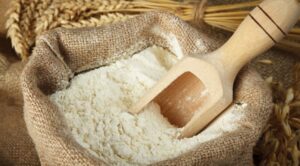
Ukrainian mukomols and cereals producers began to develop and gain a foothold in new markets and increase the volume of exports, in 2023 they can deliver on foreign markets 150 thousand tons of flour, said the chairman of the association “Ukrpischeprom”, director of the union “Mukomoly Ukrainy” Rodion Rybchinsky.
“In calendar year 2021 we exported 102 thousand tons of flour, in 2022 the active export began in September and reached 80 thousand tons. In the five months of this year, we have already exported 74,000 tons. With such dynamics, we see the possibility of exporting 150 thousand tons of flour by the end of the year,” he said during a discussion on the prospects of exports during the war, held by the Institute for Economic Research and Policy Consulting.
According to his information, the war has made significant changes in the export of flour and cereals and bran. Previously these products were exported by sea from the main shipment bases in Kherson, Nikolaev, and Odessa. Traditional importers of Ukrainian flour and cereals were UAE, Palestine, Somalia, Israel, and bran – Turkey, where 95% of them were sent by sea.
The war has made significant adjustments to the geography of sales of these products, and today the largest importers of Ukrainian flour are Moldova, Poland, Palestine, Romania, Croatia and Turkey, said Rybchynskyy.
In the EU countries, in particular Poland, Romania, Germany, Spain, Portugal, are actively exported cereals. Last year 68 thousand tons of cereals were exported to foreign markets, while during five months of 2023 – 38 thousand tons.
In this case, Rybchinsky noted a change in the ways of sending flour and cereals for export.
“We do not use the Black Sea Grain Initiative and the Danube ports. There the rent of one grain warehouse at a distance of 5-10 km from the quay wall can cost $100 thousand per month. Therefore, logistics related to work on the Danube, eat up all the possible earnings,” said the expert, adding that the main export of flour and cereals is carried by road and only 15% by rail.
According to the head of the industry association, exporters now have problems when crossing Western borders. Despite the electronic queue, cars with products stand in queues for 2-3 weeks.
“This has led to the loss of substantial contracts with Polish and Romanian retail chains, where Ukrainian suppliers have not been able to ensure timely delivery of products. Currently, Ukrainian mills have to work mainly with industrial processors,” Rybchynsky explained.
At the same time, he noted that Polish pasta made from Ukrainian flour has already appeared on the Ukrainian market.